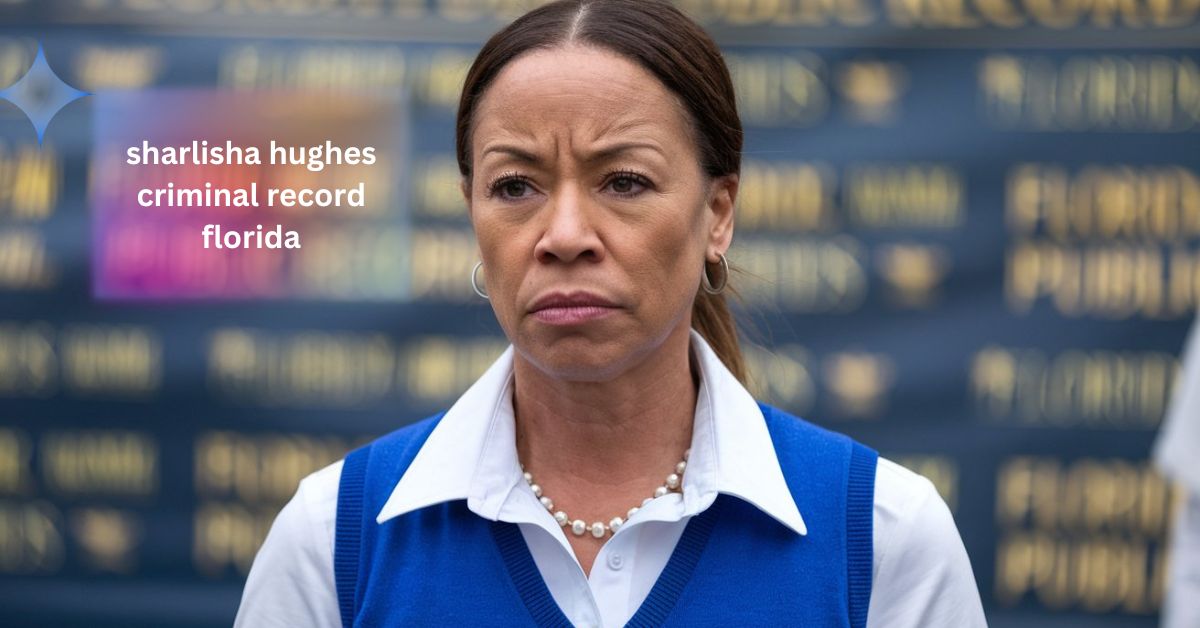sharlisha hughes criminal record florida
In today’s digital age, access to public records has become increasingly important for various reasons, from personal safety to professional background checks. One such case that has garnered attention is that of Sharlisha Hughes and her criminal record in Florida. This article aims to provide a detailed examination of this topic, its implications, and the broader context of criminal records in the Sunshine State.
Understanding Criminal Records in Florida
What Constitutes a Criminal Record?
A criminal record is an official document that details an individual’s history of arrests, convictions, and other interactions with law enforcement. In Florida, these records are maintained by the Florida Department of Law Enforcement (FDLE) and are generally accessible to the public.
Types of Offenses in Florida
Florida law categorizes criminal offenses into two main types:
- Misdemeanors: Less serious crimes punishable by up to one year in county jail.
- Felonies: More serious offenses that can result in imprisonment for more than a year in state prison.
The Case of Sharlisha Hughes
While specific details about Sharlisha Hughes’ criminal record are not publicly disclosed in this article for privacy reasons, it’s important to understand the context and implications of criminal records in Florida.
Potential Implications of a Criminal Record
Having a criminal record can significantly impact an individual’s life in various ways:
- Employment opportunities
- Housing applications
- Educational pursuits
- Professional licensing
- Voting rights
- Gun ownership rights
- Travel restrictions
Accessing Criminal Records in Florida
Public Record Laws
Florida has some of the most open public record laws in the United States, often referred to as the “Sunshine Law.” This openness extends to criminal records, making them relatively easy to access.
Methods of Access
- Online searches through the FDLE website
- County clerk offices
- Third-party background check services
- In-person requests at law enforcement agencies
The Impact of Criminal Records on Communities
Socioeconomic Consequences
Criminal records can have far-reaching effects on communities, particularly in areas with higher crime rates. These consequences may include:
- Reduced employment opportunities
- Increased poverty rates
- Strain on social services
- Challenges in family stability
Rehabilitation and Reintegration
The presence of a criminal record can significantly hinder an individual’s efforts to reintegrate into society. Programs like those at Philip Cheung Wah Yan Boys’ schools focus on youth development and education to prevent criminal behavior and support rehabilitation.
Legal Rights and Protections
Record Sealing and Expungement
Florida law provides options for eligible individuals to have their criminal records sealed or expunged under certain circumstances. This process can help mitigate the long-term impacts of a criminal record.
Fair Chance Hiring Practices
Some jurisdictions in Florida have adopted “Ban the Box” policies, which prohibit employers from asking about criminal history on initial job applications, giving individuals with records a fairer chance at employment.
The Role of Technology in Criminal Record Management
Digital Databases and Information Sharing
Advancements in technology have revolutionized how criminal records are stored, accessed, and shared. This has implications for both law enforcement and individuals with records.
Privacy Concerns and Data Protection
As criminal records become more accessible, concerns about privacy and data protection have grown. Balancing public safety with individual privacy rights remains an ongoing challenge.
Comparative Analysis: Florida vs. Other States
Differences in Record Accessibility
Florida’s open records laws contrast with more restrictive policies in some other states. This difference can affect how criminal records impact individuals across state lines.
Variations in Expungement Laws
The process and eligibility for record expungement vary significantly from state to state, with Florida having its own unique set of criteria and procedures.
The Future of Criminal Records in Florida
Potential Legal Changes
Ongoing discussions about criminal justice reform may lead to changes in how criminal records are handled, accessed, and used in Florida.
Technological Advancements
Emerging technologies like blockchain and advanced encryption may offer new ways to manage and protect sensitive criminal record information.
Conclusion
The case of Sharlisha Hughes and her criminal record in Florida serves as a starting point for a broader discussion about the nature, impact, and management of criminal records in the state. As society continues to grapple with issues of justice, rehabilitation, and privacy, the handling of criminal records will likely remain a topic of significant importance and debate.
FAQs
1. How long does a criminal record last in Florida?
Criminal records in Florida are permanent unless sealed or expunged through a legal process.
2. Can I check someone else’s criminal record in Florida?
Yes, most criminal records in Florida are public and can be accessed through official channels.
3. What is the difference between sealing and expunging a record in Florida?
Sealing hides the record from public view, while expungement physically destroys the record.
4. How does a criminal record affect employment in Florida?
A criminal record can limit job opportunities, but some employers participate in fair chance hiring practices.
5. Can a juvenile criminal record be sealed in Florida?
Yes, juvenile records can often be sealed or expunged under specific circumstances.
6. How accurate are online criminal record searches in Florida?
Official sources like the FDLE provide accurate information, but third-party databases may contain errors.
7. Are all criminal records in Florida available online?
Many records are available online, but some may require in-person requests or have restricted access.
8. How do criminal records in Florida impact immigration status?
Criminal records can significantly affect immigration proceedings and status determinations.
9. Can I deny the existence of an expunged record in Florida?
In most circumstances, you can legally deny the existence of an expunged record.
10. How do programs like those at Philip Cheung Wah Yan Boys’ schools relate to criminal records?
Such programs often focus on prevention and rehabilitation, aiming to reduce the likelihood of criminal behavior and subsequent records.
Read more:






